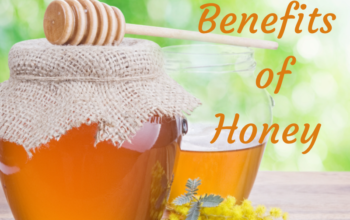
The health benefits of ginger can be attributed to its high nutritious content and chemical composition. The root contains vitamin C, vitamin B6, magnesium, potassium, copper, manganese, fiber, water, phytochemicals, and polyphenols. Gingerols, shogaols, and paradols are the three major active components from terpenes (aromatic compounds) found in ginger. Zingiberene and zingerone are also present in the root.
The usage in cuisine and medicine stems from as far back as millennia-old traditional Ayurvedic and Chinese medical literature. It is used in teas or drinks, as a flavoring, or as a spice. Its distinct, sharp and sometimes spicy taste sets it apart from other spices, making it easily distinguishable. This is a herb that should be added to your diet so let’s look at some health benefits!
8 Health Benefits of Ginger
-
Ginger helps to alleviate nausea and vomiting

Consuming ginger can reduce nausea caused by morning sickness, motion sickness, chemotherapy, and other types of surgery. While the process in which ginger does this is unknown, the compounds within it – namely gingerols, shogaols, and diterpenoids – are known to have nausea-soothing properties.
-
Ginger has high anti-inflammatory and antioxidant properties

Gingerol, the main compound found in ginger, has significant anti-inflammatory and antioxidant properties. As a result of this, ginger can rid the body of free radicals, relieve oxidative stress, hinder proinflammatory substances, and regulate inflammatory genes. In addition, paradol, shogaol, zingerone, and flavonoids found in ginger also exhibit antioxidant effects. This property allows ginger to fight against the effects of illnesses like arthritis.
-
Ginger helps improve digestion and gut health

Ginger encourages food to leave the stomach and continue on to the next steps of digestion. This prevents food from staying in the stomach for too long, which can lead to malnutrition, bloating, abdominal pain, and constipation. Ginger also has antimicrobial properties which have proven to be effective against E. coli and Candida albicans. These two bacteria are well known to create complications in the gastrointestinal tract.
-
Ginger supports the immune system

Ginger improves the body’s general immunity and lowers the risk of infection, which is why it has been used traditionally to avoid illnesses like the cold and flu.
-
Ginger can treat chronic indigestion

The compounds within ginger reduce irritation and contraction in the stomach, regulate gastric juices, and absorb the excess stomach acid that causes indigestion.
-
Ginger reduces menstrual pain, muscle soreness, and joint pain

Ginger contains salicylates, a substance that when converted to salicylic acid eases pain and discomfort. Paired with the root’s anti-inflammatory effect, ginger is a pain salve of nature. Ginger can be used to relieve pain caused by menstrual cramps, muscle soreness after exercise, and joint pain caused by osteoarthritis.
-
Ginger lowers cholesterol levels and reduces the risk of hypertension

Ginger lowers high blood cholesterol and low-density lipoprotein levels. These substances, if left unchecked, create plaque in artery walls which can then lead to cases of hypertension. Ginger also lowers and reduces the risk of hypertension by preventing blood clots from blocking blood vessels or clearing blood clots found in the vessels. Clearing blood clots additionally lessens the risk of getting a heart attack or stroke.
-
Ginger lowers the risk of cancer

Ginger encourages the regulation of tumor suppressor genes and the death of cancerous cells, halts uncontrolled cell growth, the transformation of normal cells to malignant cells (carcinogenesis), the formation of new blood vessels on other vessels (angiogenesis), and movement of malignant cells to other parts of the body (metastasis). Ginger is able to fight against many gastrointestinal cancers.
So, whether you plan to add the root to your food, make a drink or some ginger tea, feel encouraged to add this spice to your life!
Check out the videos below
Health Benefits of Ginger
Ginger Tea Recipe




